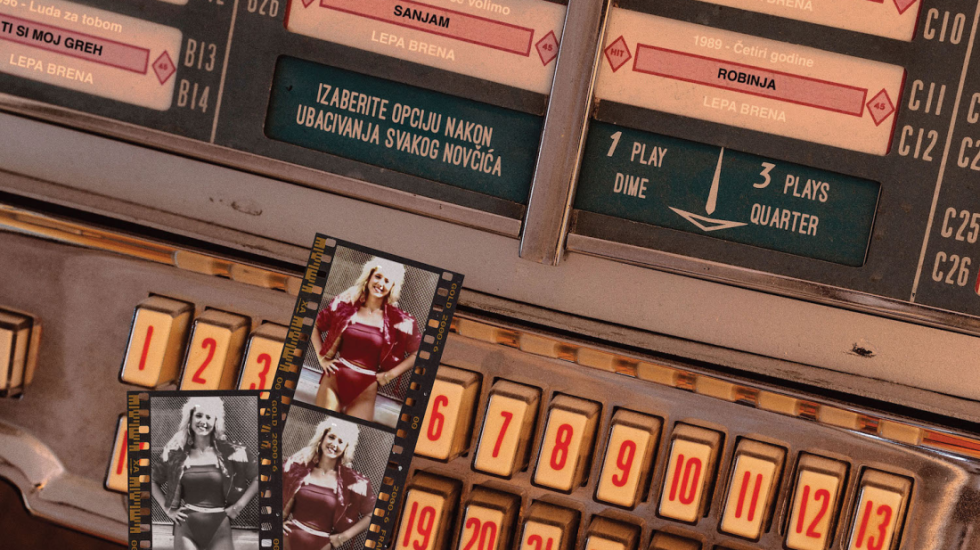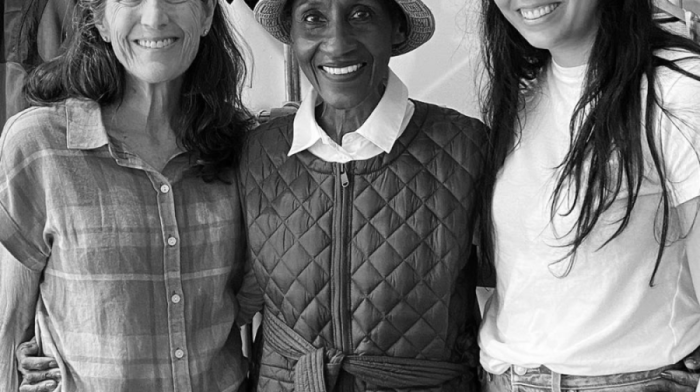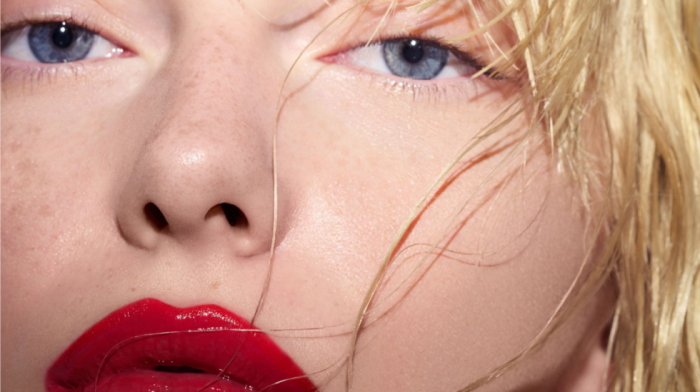It would be wonderful if we could astrally connect to a shamanic process of listening to music. No interpreters, translators, social equalizers, or other explainers. Alas, in love (for music), we are all sinners, and without proper ideological-emotional guidance, it is impossible to reach a quality understanding. Personally, I want to be cool at the end of that process, and I want my Spotify-upgrade-to-premium playlist to underline my imaginary virtues and refined caprices.
So that’s why we’re here again, to squeeze the wisdom of tradition, mix it with insights from the collective unconscious, and sprinkle it with just enough light café geopolitics to produce an authentic key that leads us into the very core of the Lepa Brena phenomenon. I hope this recipe will help strengthen your spiritual receptors.
Truly, we must begin from the start. The great author Siniša Pavić, high priest of our modern escapades, outlined precisely in 1982 how we must think about Lepa Brena. In the iconic scene from the film “Tight Skin”, around the 63rd minute, one of the characters, Srećko Šojić, steeped in every possible sin, calls the waiter and commands that his need for carnal pleasure and business marketing be summed up in one bill item: Brena for four people. Oh God, how many warm boomer tears of laughter have been shed over this blend of critique of decadent self-management socialism, lascivious objectification of the female body, and a masterpiece of folk humor. I’ve personally heard at least five sociological analyses explaining the multilayered social critique there. How it commodified music, that the bold drove out the meek, that we misunderstood Šojić as a character…
Instead of lingering in such waves of despondency and sterile phenomenology, it would be better if our deductive abilities became a bit more creative. It’s true that Pavić turns Brena into a commodity that can be priced per person, but what if those four people aren’t four horsemen of the corrupt apocalypse seated at a café table, as the mise-en-scène initially suggests? Could it be that these four people are actually four archetypes who deserve Brena as therapy?
No, dear friends, there is something authentically wild and genius in Pavić’s work that opens my third eye, allowing me to “see” that this is indeed a form of homeopathy. Brena, as a medicinal remedy, can be consumed in such a way that four different archetypes absorb what they need, but all these characters are already within us, which means each of us can metabolize Brena as a four-valent vaccine.
The first line of defense is the playful, sparkling, and sensual Brena who, like a fizzy magnesium tablet, awakens youthful energy in everyone who listens. We first encountered this Brena in the lively prelude to the song “Mile Loves Disco” on her debut album of the same name. That spirited accordion melody was an oiled slide down into Brena’s world—a bold and lighthearted exploration of what it means to be a village soul in the city, young among the old, alive among the weary. Nowhere else is the dialectic of small village versus disco club more vivid than in Brena’s work. Instead of sulking and lamenting, Brena offers a space for struggle where everyone wins or at least doesn’t lose. The poetic image where the accordion plays disco—a scene where villagers become slightly urbanized and city folks loosen up a bit—truly represents our society over the past half-century. Brena earned her doctorate on this sociological theme in 1987 when she graced us with the audiovisual extravaganza “Let’s Love Each Other”. We knew even before then that show business should intertwine the music, fashion, and film industries, but only with this megaproject did folk music discover the charms of developed capitalism.
In a densely woven tapestry of subliminal images, product placement, and other cinematic tricks, the song Učenici (Students) stands out, where we can see the unbearable lightness of Brena’s sociology with crystal clarity. Masterfully, Brena and Marina Tucaković, the songwriter, braid a strand that intertwines a slightly fizzy part, which humorously recounts school struggles, with a much darker, prophetic part, which testifies to the end of the era of good students. A significant portion of Brena’s portfolio consists of songs like this, where humor serves as the backbone of the work.
Relatively quickly, Brena slides from this youthful therapy into a slightly more intoxicating realm of sexual energy enhancers. In these songs, Brena, like a herbal potency pill, taps into erogenous zones that hadn’t been explicitly teased for a long time. Marina Tucaković set the cornerstone for this playfulness with Janoš, a love song that extends affection to our northern neighbors. Here, Brena invites Janoš for a closer engagement, playfully raising the stakes until this erotic dance culminates in the classic flirtatious line: “Strum the G string, tickle everything.” This blend of humor and feminism peaks in the song Mače moje (My Kitten), a collaboration with composer Kornelije Kovač that teases and tantalizes with delicate allusions layered over pulsing beats.
On the same album, the heat intensifies even further with the unjustly overlooked Ljubi me Šabane (Kiss Me, Shaban). While in Janoš, the eroticism largely pulses through stylistic figures, in Šaban, the intimacy becomes much more physical, and Brena constantly teases Shaban to give his all. She flirts with all the wannabe alpha males as she moans some of the lyrics that translated into English would mean something like “hit me, hit me, hit me until dawn”, but Marina Tucaković cleverly builds in a small feminist safeguard, marking who’s truly in charge with the line daring a better man to come forward if there are any. A slightly different dynamic of partnership appears in the song Sitnije Cile Sitnije, where Brena very directly commands what she wants done to her. The pinnacle of this expression, however, is the song Mače moje (My Kitten), in which everyone shines. Composer Kornelije Kovač transforms into Giorgio Moroder, and Marina brings her best, playing with highly slippery allusions that reveal more than Brena’s hot pants.
But as much as we might revel in youthful passion, not everything revolves around romance. Brena understands this well, and in the third therapeutic compartment are her songs that help us keep or rediscover love for our current republics, former one homeland, and lost utopias. We have to start with Jugoslovenka (Yugoslav Woman), the anthem that immortalizes her as the last nerve impulse of a departed state. First as a song, but also more than that, Brena stands as the final nerve impulse of that now-defunct state. The vivid images of hundreds of tricolors with stars waving and Brena blessing the Pannonian plains and Adriatic beaches from a helicopter remain the most vivid picture of a terroir slowly slipping into oblivion. For many, the first notes of this song are still an invitation to a nostalgic glance over the shoulder—not only a look back at a form of government and self-managed socialism but also at a youth that has passed. There is something epic and ancestral in the way Brena sings, even in songs that don’t ostensibly have patriotic ambitions. In the song Sanjam (I Dream), Marina and Brena present an impossible love affair, but all I hear is a love letter to an imagined geography of fields, seas, mountains, and peaks. The apotheosis of this connection to all that could be homeland is the anthem Ja nemam drugi dom (I Have No Other Home), created amidst the massive disintegration of everything Brena believed in. In the moment when tectonic plates shift and once-embraced mountains are divided by buffer zones, Brena poses the neuralgic question: ‘Who will lend you a hand when evil times come?’ Although in the very next line, love appears as the only true destination, it seems to me that with this song, Brena succeeds in capturing the zeitgeist of the split Yugoslav who still searches for the answer to this question.
However, not to leave everything in the sphere of melancholy nostalgia, the unusual trajectory of the song Luda za tobom (Crazy about You) has made sure of that. It held its hit status in the mid-90s, when it was released, and resonated so strongly with the authentic sound of the time that it warrantied a Bulgarian version three years later. Almost two decades later, this cover resurged as an underground hit on our shores, in the soundtrack of the series “South Wind”, where it unofficially became the soundtrack of the pan-Balkan homeland, shared by Southern Slavs and all who identify as such.
“Finally, we come to the last drawer, containing a nitroglycerin tablet. Each of us has at least one of Brena’s songs that serves as reanimation, intubation, and soulful recuperation. This is my choice, and in it stands a golden ampoule with the word ‘Robinja‘ (‘Slave Girl’) engraved in shallow relief—a Middle Eastern delicacy encapsulating a kind of assurance that guarantees Brena’s humor, her nonchalance, or her indifference to everything. It guarantees, in the sense that it shows us Brena is one of us after all, an emotional wild spirit ready to charge headfirst through a marble wall in Istanbul when it comes to fulfilling her primal desires. Where Mustafa tentatively stepped toward the Orient, Robinja was already running. In this golden cage of sound and philosophy, some of today’s most beloved singers have matured.”
For those who find this dominant discourse too ornate, other songs offer direct routes to the heart. Treat yourself to soulful healing with timeless tracks like Poželi sreću drugima (Good luck to others), Ti si moj greh (You are my sin), Beli biseru (White pearl) or Evo zima će (Winter is coming).
Before I sign and stamp this prescription, I won’t hide that stronger remedies exist. There are musical fentanils that might shatter you faster. But only Brena has this wide range of effects for the everyday person who appreciates the life-affirming brilliance of “sweet sin.” We’ll always be at that café table where “Brena for four” is served because those people are us. So take this therapy and don’t skip any of the four Brenas—they go down easiest when mixed together.


























Comments (0)